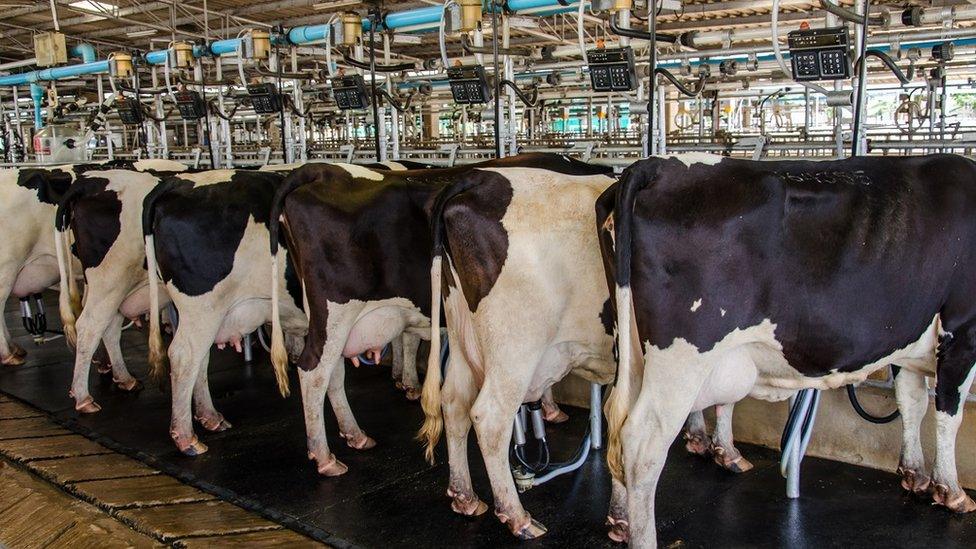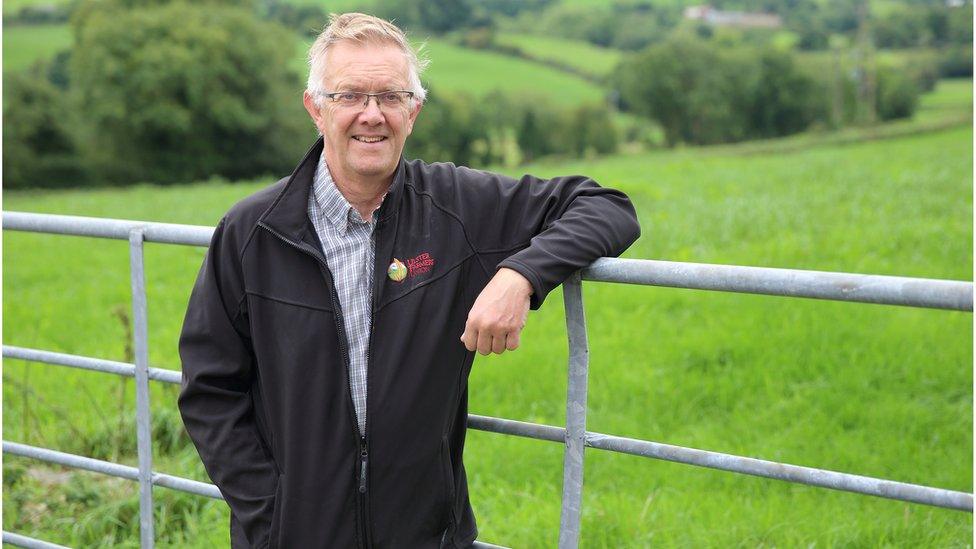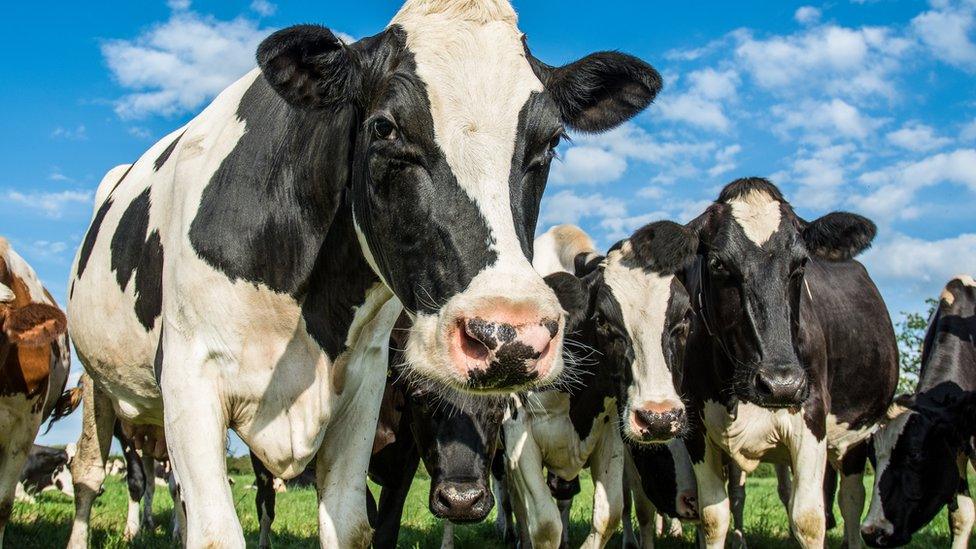No-deal Brexit cattle cull 'scare tactics' - Ulster Farmers' Union
- Published

The Ulster Farmers' Union (UFU) has rejected claims that 45,000 dairy cows will be culled in Northern Ireland as part of a no-deal Brexit.
BBC Newsnight reported that senior industry figures believe cows could be culled in the event of a no-deal Brexit, if new higher tariffs are applied to British milk.
UFU president Ivor Ferguson said it was "scare tactics".
The Department of Agriculture said it was not planning a cull of animals.
Mr Ferguson said: "We certainly don't anticipate culling dairy cows."
He told BBC Radio Ulster's Stephen Nolan Show that the figure of 45,000 cows appeared to have been "plucked out of the air".
"I don't agree with it and nobody in the Ulster Farmers' Union would agree with it," he said.
A spokesperson for the Department of Agriculture, Environment and Rural Affairs (DAERA) said: "We are not planning a cull of animals; rather we are exploring ways to support industry through contingency measures and potential funding streams."
The spokesperson added DAERA had "recruited additional resources and trained existing staff" in anticipation of significant demand for export health certificates.

Ulster Farmers' Union president Ivor Ferguson said the group has warned that a no-deal Brexit would be "disastrous" for farmers
About 800 million litres of milk are processed in the Republic of Ireland from Northern Ireland each year.
According to BBC Newsnight, the fear among producers in Northern Ireland is that, if no agreement is reached and traditional trading relationships with the south become difficult, the country will be left with a glut of milk that it will not be able to process or sell.
Mr Ferguson said the UFU has been in contact with politicians, both locally and in Westminster, "to make our case that a no-deal Brexit would be disastrous for farmers".
"Farmers' reserves are at their lowest now because farming hasn't been profitable this year in a lot of the sectors," he said.
"If milk had to face a tariff, the only way that milk would go across the border would be if the government stepped up and paid a tariff, and that's assuming the Republic of Ireland would accept the milk.
"We are asking for advice on how to handle this."
- Published7 August 2019

- Published10 January 2019
